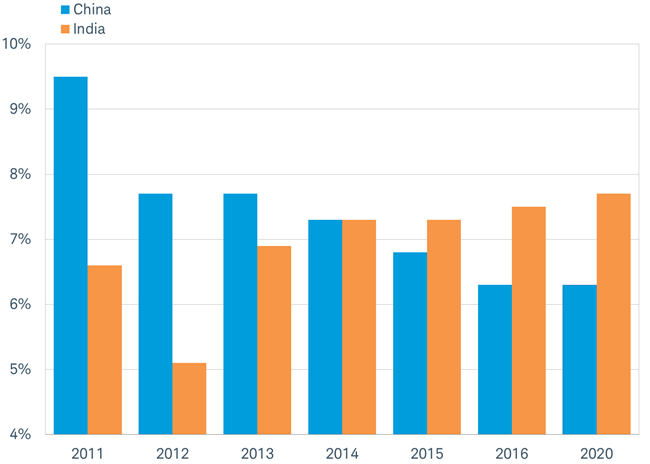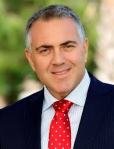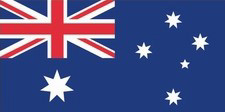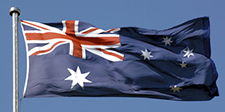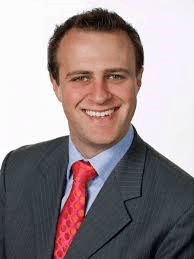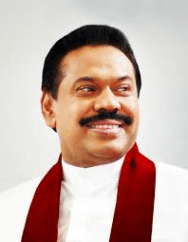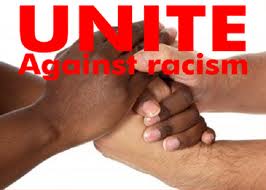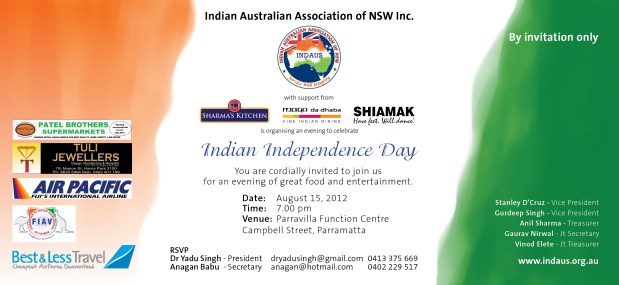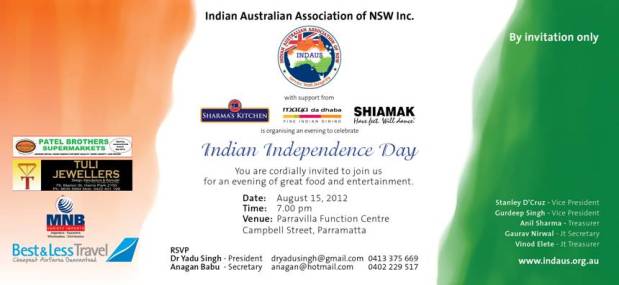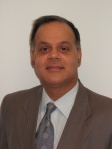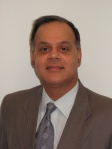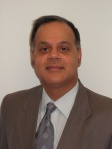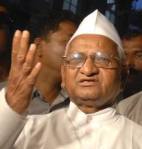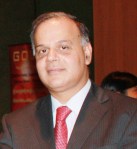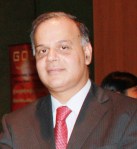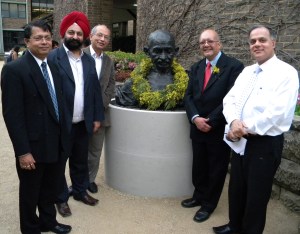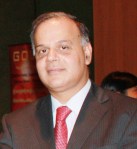5 June, 2020
I am an active part of my community and take part in its activities, either as an individual or as the leader of the team, in a meaningful way.
1. Community work in General:
- leadership roles in Indian community Medical Associations and community organisations,
- helping students in my district in India by visiting and giving scholarships etc.
2. My work as the coordinator of the Indian Consul General’s committee on students’ issues: Indian Consul General’s Community Committee on Students’ Issues, Sydney, NSW was formed at the Indian Consulate on 6th April 2009. It did intensive work and completed its task in a very efficient manner. After accomplishing its mandated task, it dissolved itself at the end of June 2009. The committee had Mr Harmohan [Harry] Walia, Mr Vish Viswanathan, Mrs Shubha Kumar, Mr Stanley D’Cruz and I was its coordinator. This committee had done following activities;
- met students numerous times.
- organized a students’ forum on 16th May at Strathfield.
- co-organized a students’ forum with UIA in Strathfield on 6th June.
- arranged help to a woman student who was a victim of domestic violence.
- arranged help to 2 women students who were stalked by another Indian co-worker.
- arranged meetings with minister of education, NSW and her senior advisers and students from an aviation school.
- arranged a meeting with the president, NSW upper House [Mr Peter Primrose] and Ms Helen Westwood MLA and Flying school students.
- arranged a meeting with a community minded lawyer and aviation school students.
- met the visiting mother of a student of an aviation school. This lady’s husband had died only 4 weeks ago due to the serious stress involved in losing the money with the school in Sydney.
- arranged and participated in TV coverage of students’ issues on Channel 7, 9, 10, SBS TV, ABC TV, and Bloomberg.
- participated in the coverage of students’ issues on ABC radio, SBS radio, SBS Hindi radio, 2UE, JJJ, Indian Link radio, Radio UMANG, 2GB radio and SBS Kannada Radio.
- arranged talk-backs on students’ issues on SBS radio and Radio UMANG [98.5MHZ, Fridays, 8-9 PM]. Radio Umang has ceased functioning now.
- participated in coverage of students’ issues on SMH, The Australian, Daily Telegraph, other newspapers and AAP.
- participated in the coverage of students’ issues on Indian newspapers in Australia [Indian Link, Indus Age, The Indian, The Indian Sub-Continent Times and Indian Down Under].
- participated in the coverage of students’ issues on TimesNow, NDTV, CNN/IBN, Headlines Today, AajTak and other Indian TV Channels.
- participated in the coverage of students’ issues on main Indian newspapers like Times of India and PTI.
- assisted some top-grade Australian media programs like Four Corners from ABC, with wide audience in getting students’ issues covered.
- arranged funds for the accommodation for the relatives Mr Rajesh Kumar [the petrol bomb victim from Harris Park] at the request from Indian Consulate.
- met and networked with Commander Robert Redfern, Parramatta Local area Command of NSW Police several times for students’ issues.
- counseled students to stop further processions after the ones in Harris Park streets.
- participated in the community leaders’ meeting with chairman, Community Relations Commission [CRC] at CRC HQ.
- participated in a CRC organized meeting with Indian students at Parramatta RSL.
- participated in the community leaders’ meeting with the Premier, Mr Nathan Rees.
- met Indian Consul General and Consul in regards to these matters several times.
- discussed and formulated the strategy to solve the problems of our students.
- submitted this strategy to the Consul General of India and NSW task force and other relevant authorities.
- provided leadership in the matters relating to Indian students.
- gave our after hours and week-ends for students’ work and provided pastoral care to the needy students.
- provided/facilitated medical help to the needy students/their family members.
- met the visiting Indian journalists at the Consulate.
- raised our voice forcefully against the exploitation of Indian students by some Indian employers.
- appealed to the Indian newspapers and Radio programs to ask questions from every leader [on students’ issues] about their involvement in any activity which created a conflict of interest in those matters.
3. My community work beyond/outside the Consul General’s committee on students:
- helped the refund of more than $12000 to a student of a Flying school.
- arranged free legal assistance to the students from this Flying school from solicitors/legal firms in Sydney and Canberra.
- facilitated a good outcome between parties involving VETAB, Flying school and students. I was the mentor/support person of these students of the Flying school.
- held several meetings involving VETAB Director and other authorities, the Flying school representatives and students in my office and VETAB offices.
- worked and organized refunds/savings of $300000 [including waiving of about $50000 of the legal fees in regards to a legal proceedings in the Supreme Court where students had lost their case and costs were awarded against them] for the Flying school students from ESOS scheme with the help of VETAB, DEEWR and federal education dept. I was the key and the only Indian person in this work for these students. I did this as I felt it was my duty to help students from my community who were robbed of their money and were feeling powerless in Australian system.
- helped payment of $2400 to a student which was originally denied by his employer in Western Sydney.
- donated $500 to an Indian students’ students association.
- arranged sponsorship of $1000 for foods, meeting hall and public liability insurance for a students’ association.
- mentoring students for their careers and future in OZ.
- donated $500 to Australia Hindi Indian Association’s [AHIA] seniors.
- donated $500 to Fiji floods relief fund via International congress of Fiji Indians and organized $2000 donations from other doctors.
- donated $500 to Sanatan Arya Pratinidhi Samaj, Shane Park, Sydney.
- donated approx. $5000 for various needy/deserving causes involving victims of earthquakes, accidental deaths, injuries and illnesses.
- helped several students including assault victims for their work comp, treatment and issues involving their parents.
- liaised with NSW Police higher authorities and ensured actions in regards to the assaults of 2 Indians in Blacktown, Sydney.
- advised/mentored several others in regards to the steps they needed to take when they were assaulted.
- took leadership role on Indian Australian community matters in the media-Indian and Australia media [Chanel 9, SBS, NDTV, Indian ethnic newspapers].
- helped Radio National in making a documentary on students [see details in this BLOG elsewhere].
- helping community members from India and South Asia with a concessional fees structure. [a service worth more than $50000/year]. People from other communities, if they can’t afford specialist medical practitioner’s fees are also included.
- tried to clean the community leadership and making them accountable.
- exposed commission taking by some leaders of an Indian community association in Sydney.
- took a leadership role against unfair portrayal of Australia as a Racist nation by Indian media with interviews and debates.
- took part in “Is Australia a Racist nation” debate with David Penberthy [Ex Editor, Daily Telegraph] in Sunrise programme of Ch 7 in 2009.
- mentoring medical doctors from India in regards to their training and registration issues.
- helped a House Surgeon who was facing exclusion from the medical work due to her unfair treatment in a Sydney hospital and then worked actively with this young doctor and her supervisors including Hospital administrators to get her into the internship at a different hospital, thus leading to a successful outcome.
- worked as a catalyst in resolving the issues between Indian consul General, Sydney and some Indian businessmen with a successful outcome in 2010.
- took an active and a leading role in resolving the issues between Indus Age [after a controversial ad] and the community in 2010.
- formed a community committee, Friends of International Students, www.fairgo4internationalstudents.org. against Visa Capping Bill in May 2010 and lobbied with the Govt ministers and Media against this Bill which was very harmful to the students. Worked actively for this committee, visiting community gatherings, temples and Gurdwaras to collect signatures against this Bill. We also met the Immigration minister, Mr Chris Evans, asking him to not proceed with this Bill.
- spoke as the leading doctor in the Health Summit, organized by GOPIO, Sydney, educating/informing people on Health matters on 4th Dec, 2010.
- helped a family locate their son [International student] http://www.smh.com.au/nsw/a-dumped-bike-a-glimpse-on-sydney-stations-cctv-what-happened-to-indian-student-abhijeet-20101006-166rs.html.
- raised $7100 for Qld Flood relief on 28th Jan, 2011.
- took up the matter involving HINDI in the Australian national draft curriculum-Languages and wrote to ACARA, in addition to supporting Australian Hindi Committee.
- Organized India Day Fair, 7th Aug, 2011, at Parramatta Park, Parramatta.
- Organized Australia Day and Indian Republic Day celebrations in 2010, 2011 and 2012, 2013, 2014 and 2015.
- Took part in “Clean Up Australia Day” events in Liverpool and Toongabbie many times.
4. Health Education Seminars for the Community:
- First such Seminar with GOPIO in Dec, 2010.
- Second such seminar in Dec, 2011.
- Third such Seminar with GOPIO, 28th April, 2012.
- Multiple Radio interviews and talk backs [Darpan Radio, SBS Hindi Radio, Dhanak Radio, Navtarang Radio, SBS Punjabi Radio] on Health matters.
- Anchored Radio UMANG Health Show.
5. Sri Mandir Temple matter:
- took up the issue of attacks on Sri Mandir temple, Auburn and brought it to the national media.
- attended meetings with Police, along with temple committee members.
6. Australian Uranium to India Issue:
- raised the issue of Australian Uranium sale to India during the Australia India Day celebration on 24th Jan, 2010 where several ministers, MPs, MLAs, MLC, and media people were present.
- wrote an Opinion Piece on this issue in the prestigious Journal of Mining & Investment Australia.
- wrote in Foreign Policy Research Centre [FPRC] Journal twice-one on India-Australia relations and 2nd on India’s Look East Policy, advocating sale of Australian Uranium to India.
- raised Uranium issue during Australia Day/Indian Republic Day event, in Jan, 201o and 2011, in presence of senior Australian politicians.
- raised Uranium issue in India Day Fair, Parramatta on 7th Aug, 2011, in presence of senior Australian politicians, including Ministers.
7. Incorrect Map of India in DIAC [Dept of Immigration and Citizenship], Australia website:
- campaigned effectively for removal of an incorrect map of India [which had excluded Arunachal Pradesh and Jammu & Kashmir] in DIAC website and succeeded.
8. Kyle Sandilands & 2DayFM issue:
- campaigned against insulting comments from Kyle Sandilands, 2DayFM and forced them to offer an apology for his comments against India and River Ganges.
9. Lord Ganesh Vs Third Reich play and Goddess Lakshmi picture on a Bikini matters:
- campaigned along with others on these matters and made our concerns known assertively, via Blog, calls, Facebook and interview with The Age newspaper.
10. Community Relations Commission [CRC] Working Group on International students 2009-10:
- participated as an active member of the working party with CRC on students including inputs for Z information card.
11. Diwali in NSW Parliament and CRC Deepavali Committee 2011-12:
- successfully campaigned/lobbied with NSW to host Diwali celebration in NSW Parliament
- Worked as a member of this committee to assist NSW Govt to host Deepavali in NSW Parliament-the only such Indian event.
12. Ministerial Consultative Committee for Indian Australian Community in NSW 2011-12:
- NSW Minister Victor Dominello appointed me as one of the members and worked as a member of this committee to deal with issues relevant to Indian Australian community in NSW.
- Contributed as an active member of the sub-committes [of this MCC] on Community service, communication, Trade & Investment, Immigration, Youth and new migrants
13. Worked with a team in The Hills Shire & raised >$22000 for Qld floods Victims in March, 2013.
14. Organised INDAUS FAIR, Sunday, 11th Aug, 2013, at Rosehill Race Course
15. Indian Independence Day Celebration on 15th Aug, 2012 at Parravilla, Parramatta: Free [no cost to guests] event with performances from Shaimak Davar group, Melbourne.
16. Organised a Meet and greet event for visiting prominent writers and Mr Oscar Fernandes MP [Indian National Congress General Secretary] in 2012.
17. Australia Day & Indian Republic Day celebration on 27th Jan, 2013, Ryde Civic Centre, Ryde, NSW.
18. Parramasala working group with Lord Mayor, Parramatta Council-advising about what should be done to make Parramasala more vibrant and popular.
19. Ran a campaign to remove pictures of Hinduism deities from the label on Beer bottles from Brookvale Union brewery
20. Interacted with relevant people and agencies on Ms Monika Chetty’s tragic death in Sydney, including interviews with SMH, ABC news, Radio National Background Briefing, Channel 9 A Current Affairs and ABC 7.30 Report programmes.
21. Interviewed for emigration from Australia by Newes.com.au and SBS Radio.
22. Interviewed for an article on Indians in Taxi industry in Australia, perceptions and realities.
23. Interviewed by Radio National ABC on Hinduism religious affairs.
24. Organised (as part of the team) the Farewell to Consul General, Mr Arun Goel, 18th March, 2014, Harris Park.
25. Took up the matter against Federal Government’s repeal proposal of Sec 18C of Racial Discrimination Act via Blog, Social media and Indian and Australian newspapers like Hills News, Blacktown Sun, Penrith Gazette.
26. Helped a senior member of the community to get his OCI issues sorted out from the Consulate without unnecessary expenses and trouble.
27. Helped an Indian Intern doctor (Dr A. K) in regards to her issues with a Sydney Hospital.
28. Took up the matter of “upside down” display of India’s national flag during Master Chef Australia broadcast, and got it rectified by the concerned agencies.
29. Took the matter of Manjit Singh in regards to his issues for Passport and PCC with Indian Consulate General offices, Perth, Nov 2014, and achieved the successful outcome.
30. Took a leading role in Breast Cancer screening seminar with various agencies, Ermington Community Centre, Ermington, NSW, on Sunday, 16th Nov, 2014.
31. Took up the matter of inappropriate label, depicting Hinduism deities, on a Beer bottle, Jan 2015. See Sydney Morning Herald newspaper article (http://www.smh.com.au/nsw/new-controversy-brews-over-offensive-ginger-beer-brand-using-hindu-imagery-20150110-12kv0j.html)
32. Australia Day & Indian Republic Day celebration, Parravilla, Parramatta on 25th January, 2015
33. Included as one of 20 Goldmine leaders of Western Sydney by Daily Telegraph (http://www.dailytelegraph.com.au/newslocal/competitions/fair-go-for-the-west-meet-the-goldmine-leaders/story-fngy6zqs-1226881501042?nk=58ed0c98bf8a436c82ec636e42b57043)
34. Co-organised a Health talk with AHIA on Prostate Cancer for the community, Pennant Hills Community Centre, Saturday, 11th April, 2015
35. Took up the matters with Parramatta Park Trust, Parramatta Council and other relevant authorities for a security review and addressing those concerns. Published in newspapers.
36. Took up the matter involving stereotypical comment from a Chanel 9 anchor in regards to Indians and 7-Eleven shops.
37. Organised INDIA DAY, a mega celebration of India’s Independence Day, Saturday, 15th August, 2015, Parade ground, Old King’s School, Parramatta, NSW.
38. Took up the matter involving gun shots firing at a business owned by an Indian Australian in Harris Park on 11th April, 2015.
39. Raised $23000 for “Help Nepal” campaign to help victims of devastating Earthquake in Nepal. https://yadusingh.wordpress.com/2015/05/28/proud-pleased-to-have-raised-23000-for-nepal-earthquake-victims/
40. spoke as an invited keynote speaker at University of Western Sydney event, Parravilla, Parramatta on 24th Nov, 2014.
41. Worked and arranged the rectification of incorrect Indian Map in a Western Union-Australia Post advertisement. https://yadusingh.wordpress.com/2015/04/15/western-union-proves-it-is-a-great-business-and-cares-for-the-feedback-from-people-and-customers/
42. Took up the matter with authorities when Billu’s Eatery was fired with gun shots in Aug, 2015.
43. Organized a Vigil for Prabha Arun Kumar on 7/3/16 at Parramatta Park, where she was murdered a year ago.
44. Organized a Meet and Greet event for a visiting ministerial delegation from Uttar Pradesh, India and the new Consul General of India, His Excellency Mr B. Vanlalvawna and his wife, Dr Rosy Vanlalvawna at Madison Function Centre, Dural, NSW on 1/4/16.
45. Organised INDIA DAY Fair to celebrate Indian Independence Day in Parramatta, NSW on Sunday, 14th August, 2016. More than 10,000 people attended the event.
46. Meet and greet the Hon Craig Laundy MP, Assistant Minister for Multicultural Affairs, Commonwealth of Australia, Harris Park, 13 May, 2016.
47. Took part in a discussion with Scott Matheson, South Asia Manager for Department of Immigration and Border Protection (DIBP) at DIBP offices in Parramatta on 18th May, 2016.
48. Organised a tea and interaction between Indian Australian community and visiting Indian journalists, in collaboration with Department of Foreign Affairs and Trade (DFAT), Harris Park, NSW, Saturday, 17 September, 2016
49. Organised Shadhanjali (Tribute) event for martyrs of Uri Terror attack, Dezire Function Centre, Blacktown, NSW, Sunday, 25th September, 2016
50. Participated in a Roundtable discussion, organised by Department of Immigration and Border Protection, Holiday Inn, Parramatta, Thursday, 27 October, 2016.
51. Campaigned for Hindi classes at the weekends at Consulate General of India, Sydney, and achieved a successful outcome.
52. Took up the visa matters for Mr MK and Mr DV with Indian Consulate in Sydney, and achieved a successful outcome.
53. Organised a tribute/Vigil for Manmeet Sharma “Alisher” at The Robyn Thomas Reserve, Parramatta, 2 November, 2016.
54. Attended a charity fund-raising Badminton tournament (for Westmead Children’s Hospital), organised by Basava Samithi, Glenfield, NSW, 23 October, 2016.
55. Attended a charity fund-raising Cricket tournament (for Westmead Children’s Hospital), organised by Basava Samithi, Glenfield, NSW, 6 November, 2016.
56. Organised Australia Day & Indian Republic Day celebration on Wednesday, 25 January, 2016.
57. Radio National profiled FIAN President, Dr Yadu Singh recently. https://www.facebook.com/radionational/videos/10154646233077378/
58. Acting as a key leader and working with multicultural community leaders for Keep NSW Safe campaign to get section 20d of Anti-Discrimination Act of NSW amended.
59. Invited to present my views for 18c of Racial Discrimination Act in front of the Parliamentary Joint Committee on Human Rights, I February, 2017 at NSW Parliament.
60. Federation of Indian Associations of NSW was one of the finalists for the Australia Day awards by the City of Parramatta Council on 26 January, 2017.
61. Invited as a guest to the welcome event for Prime Minister of Israel, His Excellency Benjamin Netanyahu, Central Synagogue, Bondi Junction, Sydney, 22 February, 2017. Prime Minister of Australia, Malcolm Turnbull, former Prime Ministers (John Howard and Tony Abbott), NSW Premier Gladys Berejiklian and many Ministers and MPs from both sides of politics were in attendance in this event.
62. Invited as a guest, representing Indian community, by AFL for a pre-match reception and the match between GWS Giants and Gold Coast SUNS teams at Spotless Stadium, Olympic Park, NSW, 1 April, 2016.
63. Invited as a representative of Indian community, for the welcome Reception for new NSW Minister for Multiculturalism, Ray Williams MP, NSW Parliament, 22 March, 2017.
64. Invited to participate in Israel’s 69th Independence Day celebration, Shangri-La Hotel, Sydney, 2nd May, 2017
65. Organising 350th Birth anniversary of Guru Gobind Singh ji and Vaisakhi at NSW Parliament, 31st May, 2017.
66. Organised Wreath Laying Ceremony, working with Australian Indian Historical Society (AIHS), at the Australian War Memorial in Canberra for Pte Sarn Singh Johal and Pte Nain Singh Sailani at their 100th death anniversary, 10 June, 2017. They fought alongside Australian soldiers in WW1 and were killed in Europe on 10th June and 1 June 1917 respectively.
67. Organising INDIA DAY 2017 to celebrate Indian Independence Day, Saturday, 12 August, 2017, Parramatta Park, Parramatta.
68. Was interviewed by ABC 7.30 on Census data for Indian community on 27 June, 2017. https://www.youtube.com/watch?v=4v1Dp5ebINk&sns=em
69. Invited as the guest of the NSW Government to attend Premier of NSW’s Multicultural Media Award, Sydney Olympic Park, 30 August, 2017.
70. Q and A with Assistant Minister for Immigration and Border Protection, Alex Hawke MP, on 20th September, 2017, Madison Function Centre, Dural NSW
71. Appointed Community Ambassador for 2018 Gold Coast Commonwealth Games on 20 September, 2017.
72. Invited to meet Australian High Commissioner to India, Ms Harinder Sidhu, along with a few more community members, in Parramatta on 11 October, 2017.
73. Co-organised Dementia Forum at the Consulate General of India, Sydney on Friday, 27 October, 2017.
74. Christmas Drinks and Dinner for multi-faith Community leaders, Madison Function Centre, Dural, NSW, Tuesday, 12 December, 2017.
75. Co-organised Baisakhi and Sikh New year celebration at Ryde Civic Hall, Sunday, 8 April, 2018.
76. INDIA DAY 2018 FAIR, Saturday, 11 August, 2018, Parramatta Park, Parramatta (In progress).
77. Community Education Seminar Series: Diabetes Mellitus, Sunday, May 20, 2018, 2.15-4pm, Wentworthville Community Centre, Wentworthville, NSW
78. Community Education Seminar Series: Dementia, Sunday, 17 June, 2018, Epping Leisure Centre, Epping, NSW (Working with Hornsby Indian Seniors Group and Dementia Support Group for Indian Australians).
79. Community Education Seminar Series: Health & Wellbeing, The Lake Neighbourhood Centre, The Ponds NSW 2769 (Organised by Punjabi League of Australia)
80. Diwali Fair, Holroyd Gardens, Merrylands, NSW 2160, 28 October, 2018
81. FIAN participated in Cumberland Council’s Diwali celebration, Station Street, Wentworthville, NSW on Saturday, 17 November, 2018.
82. Community Education Seminar Series: Law & You, Sunday, 18 November, 2018, Holroyd Function Centre, Merrylands NSW 2160
83. Invited to the Australia Day Lunch, hosted by the Premier of NSW and NSW Australia Day Council in Internation Conventional Center, Darling Harbour, Sydney, Friday, 18 January 2019.
85. Invited to the Australia Day Reception, hosted by the Premier of NSW in Old Governor’s House, Parramatta, NSW, Saturday, 26 January 2019.
86. Invited to attend Parramasala Media launch on Friday, 15 February 2019 at Parramatta River Foreshore, Parramatta.
87. Organised a condolence meeting, in the memory of 44 CRPF Jawans in Kashmir, killed by Jaishe-e_mohammed terror group, at Dezire Function Centre, Blacktown NSW on Sunday, 17 February 2019.
88. Invited to, and attended, a Candlelight vigil organised by Indian Diaspora Council of Australia and International Fiji Girmit Association in the memory of 44 CRPF Jawans killed by Jaish-e-Mohammed terror group in India, in Liverpool NSW on 20 February 2019.
89. Invited to attend International Mother Language Day by Cumberland Council at Auburn Library on Thursday, 21 February 2019.
90. invited to, and attended, the Harmony Dinner, hosted by Premier of NSW at Rosehill Gardens, Rosehill NSW on Thursday, 28 February 2019.
91. Invited to a community leaders’ meeting with NSW Multicultural minister, Ray Williams MP, for an announcement of $400K funding of NSW Rigby League for sports’ promotion in multicultural communities at NSWRL HQ in Olympic Park Sydney on Tuesday, 5 March 2019.
92. Met the Immigration minister in Sydney on 7 March 2019 in regards to changes in visa matters. Previously, I submitted a report to Immigration Minister re issues our temples are facing while recruiting priests for the religious work. Pleased to know that suitable changes have been made.
93. Invited to a community leaders’ meeting with Multicultural minister, Ray Williams MP, for an announcement of $900K funding of festivals and events of the Indian Australian community in Parravilla Function Lounge on Saturday, 9 March 2019.
94. Organised Holi 2019: Festival of colours in Prince Alfred Square Park, Parramatta, NSW on Sunday, 10 March 2019.
95. Invited to the VIP reception for Parramasala at the Prince Alfred Square Park on Friday, 15 March 2019.
96. Attended Girmit Day and spoke at Ram Krishna Temple on 17/5/19.
97. Took part in a debate with Manbir Kohli on PM Modi’s victory in Indian election on Voice of India-Monika Geet Mala Radio on Sunday, 23/5/19.
98. Attended “Spreading a culture of peace”, organised by IPYG and spoke at the event in Centenary Square, Parramatta on 25/5/19.
99. Attended the welcome reception for new Multicultural Minister John Sidoti in NSW Parliament on 28/5/19. Premier of NSW was the chief guest.
100. Attend Chand Raat Eid festival, as their guest, in Rosehill Gardens, Rosehill, NSW on 4/6/19.
101. Attended Australia Telugu Samith’s “Telugus have Talent”evening on 9/6/19.
102. Attended a meeting with Indian seniors in Epping and organised attendance of Ms Li from Transport NSW to explain facilities for seniors on Sunday, 16/6/19.
103. Attended “An evening with Indra Nooyi”, former CEO of PepsiCo in ICC, Sydney on 18/6/19.
104. Took a stand on 19/6/19 for Hitender Kumar, a former employee of Consulate General of India in Sydney. Interviewed by SBS Punjabi and other news media.
105. Attended International Yoga Day in the Ponds, NSW on Sunday, 23/6/19. Organised by Art of Living group in Sydney.
106. Organised “Collaboration and dialogue” meeting for Indian Australian community associations/groups, involving 55 people, Wednesday, 3/7/19, Madison Function Centre, Dural, NSW.
107. FIAN team and I met the Hon John Sidoti MP, Minister for Sports, Multiculturalism, Seniors and Veterans in his office on Thursday, 4/7/19.
108. Delivered a lecture on “Heart Health” for the community at Parramatta West Public School, Parramatta on Sunday, 7 July 2019
109. Organised INDIA DAY Fair, 11 August, 2019, Parramatta Park.
110. Organised many health seminars for the community in 2019.
111. Attended Premier’s Australia Day Reception, 26 Jan, 2020.
112. Organised support for Indian international students, March-June 2020
113. Organised support for stranded Indians in Australia, March-June 2020.
114. Lobbied with federal and state Governments for the support to international students, March-May 2020.
115. Took part in videoconferences with High Commission of India, Canberra, April to June 2020.
116. Took part in media campaigns to educate people for the prevention from COVID-19, Feb-June 2020.
117. Made many educational videos for COVID-19 prevention, Feb-June 2020.
Networking
fianinc1@gmail.com
www.twitter.com/dryadusingh
http://www.Facebook.com/dryadusingh
http://www.Facebook.com/DoctorYaduSingh
LinkedIn http://au.linkedin.com/pub/yadu-singh/52/581/864
Dr Yadu Singh/Sydney/5 June 2020

